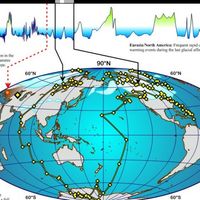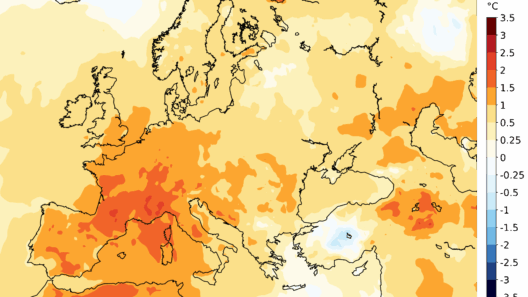In an era marked by escalating climate crises, one might wonder: are Christian preachers denying global warming? This inquiry, while seemingly straightforward, unveils a complex tapestry of beliefs, influences, and the intersection of faith with environmental stewardship. As the planet continues to warm, the societal discourse surrounding climate change feels more urgent than ever, prompting us to critically examine various voices within the Christian community.
At the outset, it is essential to delineate the landscape: Christianity encompasses a vast spectrum of ideologies and interpretations of scripture. This diversity plays a pivotal role in how climate change is perceived within this religious framework. Some preachers advocate for a proactive approach to environmental issues, positing that caring for the Earth is a divine mandate. Others, however, maintain a stance of skepticism, casting doubt on the scientific consensus regarding global warming. The question then arises: what factors contribute to this dichotomy?
Historically, Christianity has fostered a profound connection between its followers and the stewardship of creation. Verses like Genesis 2:15, which speaks of humans tending to the Garden of Eden, have long been interpreted as a call for ecological responsibility. Yet, as the climate crisis becomes more pronounced, various factions within Christianity have diverged on their interpretations. Some preachers align their theological beliefs with environmental advocacy, engaging congregations in discussions about sustainability, conservation, and responsible consumption. They espouse the notion that caring for the planet is central to a faithful life.
Conversely, a significant number of Christian leaders express skepticism toward mainstream climate science, often attributing it to political agendas rather than empirical evidence. This skepticism may stem from a variety of sources such as deeply rooted political affiliations, misinformation, or an inherent distrust of scientific authorities. Furthermore, some preachers perceive climate change discourse through a lens of eschatology, suggesting that ecological catastrophes may be preordained signs of the end times. This perspective may lead them to prioritize spiritual matters over temporal concerns, creating an attitude of indifference toward climate activism.
The interplay between theology and politics cannot be overstated. Climate change has become entangled with partisan divisions in many countries, particularly in the United States. This polarization frequently influences religious leaders, with some aligning their messages with the broader political rhetoric of their constituencies. A preacher’s stance on global warming can be less about scientific validation and more about cultural identity. This phenomenon poses a challenge for those within the faith community advocating for ecological responsibility; how does one bridge the divide between faith and climate science in a political landscape that often views them as mutually exclusive?
Amidst this discourse, the role of education emerges as a catalyst for change. Engaging congregants in informed discussions on climate science can dismantle misconceptions and foster a collective responsibility toward environmental stewardship. For instance, integrating teachings about creation care into sermons and Bible studies can illuminate the ethical imperative to protect the Earth. Thought-provoking discussions might also weave in contemporary scientific findings, underscoring the plebeian consensus around climate change while framing it within a theological context.
Moreover, collaboration between faith-based organizations and environmental groups presents an innovative pathway for addressing global warming. Initiatives that unite these seemingly disparate spheres might yield powerful synergies. For example, eco-ministries have sprung up, aiming to educate congregants on sustainable practices and the theological significance of caring for creation. These endeavors can serve to reshape paradigms within the church, fostering a proactive approach to environmental issues.
Nevertheless, the journey toward consensus on climate change within the Christian community is fraught with challenges. The entrenched beliefs of certain preachers can pose formidable obstacles to the propagation of climate science acceptance. This resistance may arise from a perceived threat to their doctrinal tenets or concerns about societal implications. Therefore, reformist efforts must be nuanced, recognizing and respecting the deeply held beliefs of these communities while gently nudging them toward greater environmental awareness.
Additionally, the impacts of climate change are not merely theoretical; they manifest in tangible ways—extreme weather events, rising sea levels, and disrupted ecosystems all serve as harbingers of an urgent crisis. The human toll of these phenomena creates an ethical imperative for faith leaders to acknowledge and act upon the reality of climate change. Ignoring these signals is not merely an oversight but a grave disservice to their communities and future generations.
In conclusion, the question of whether Christian preachers are denying global warming is not merely binary. Within the rich fabric of Christianity exists a diverse array of beliefs and interpretations that influence attitudes toward climate change. While some preachers actively promote environmental stewardship as a fundamental obligation, others resist acknowledging the crisis. Navigating this terrain requires compassion, understanding, and a relentless commitment to bridging faith with science. Ultimately, fostering an ecologically conscious Christian community may not only benefit the planet but also fulfill a divine call to care for God’s creation. As the climate crisis intensifies, embracing this challenge with fervor becomes ever more critical.







